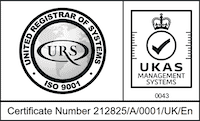Pilot-scale Hydroprocessing and Distillation Facilities Network
The UK SAF Clearing House is building a network of specialist facilities that provide access to pilot-scale hydroprocessing and fractional distillation equipment. This capability enables fuel developers, researchers and innovators to produce and refine synthetic aviation fuels at meaningful scale, allowing early-stage concepts to be tested, optimised and advanced toward qualification. By connecting industry and academia with these resources, the Clearing House supports the transition from laboratory discovery to viable sustainable aviation fuel pathways.
The Clearing House does not oversee or assume responsibility for the outcomes of any relationships established through this network. Instead, this page serves as a platform to introduce stakeholders to available expertise and infrastructure, helping to accelerate progress toward sustainable aviation fuels.

ASG Analytik-Service AG
Website: asg-analytik.de/en/miniplant-lab
Contact: Alina Greve (Alina.Greve@asg-analytik.de) and Max Jennerwein (maximilian.jennerwein@asg-analytik.de)
Hydroprocessing Capability: Scale: ml - 1L per day | TRL: 1-3
Fractionation Capability: Scale: 100ml - >200l/d | TRL: 1-6
ASG provides services for hydroprocessing, reactions, and distillations in their Miniplant LAB using both batch and continuous systems. Distillations capacities vary between 100 mL and 60 L batch, as well as continuous distillations up to 25 L/h – supporting small pilot runs up to 10 tonnes. All operate in a wide temperature and pressure range (vacuum and overpressure). For hydroprocessing, a batch and a tubular reactor (liter scale) are also in operation.
ASG is equipped with close integration with the analytical services, meaning all test results are controlled and documented promptly. ASG’s lab is accredited for the majority of ASTM D1655 and ASTM D7566 parameters, and offers special analyses, such as GCxGC.
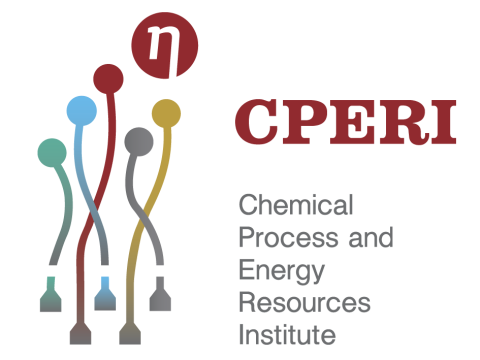
CPERI (part of CERTH)
Website: www.cperi.certh.gr/hydpro
Contact: Stella Bezergianni (sbezerg@certh.gr)
Hydroprocessing Capability: Scale: 50ml/h – 10L per day | TRL: 1-5
Fractionation Capability: Scale: 20 L per day | TRL: 5
CPERI offers comprehensive hydroprocessing services at TRL3-5, with daily throughputs up to 10L. Facilities are designed for long-term, 24/7 operation and are built to withstand aggressive conditions (e.g. high acidity, corrosiveness). Although not catalyst producers, CPERI supports three-way collaborations between crude producers, catalyst developers, and pilot-scale users. The team maintains flexibility in catalyst use, provided formal classification standards are met. CPERI positions itself as one of Europe’s most advanced hydroprocessing facilities which will soon extend to TRL6 (100L per day)
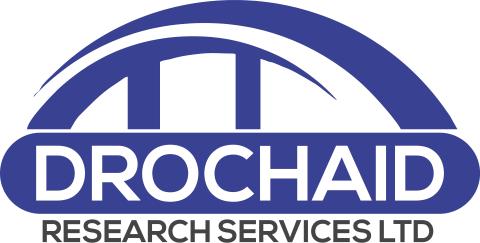
Drochaid Research Services ltd
Website: www.drochaidresearch.com
Contact: info@drochaidresearch.com
Hydroprocessing Capability: Scale: 0.2-2L | TRL: 1-5
Fractionation Capability: Scale: 1L | TRL: 1-3
Drochaid specialises in lab-scale catalyst testing (TRL1-5), hydrocarbon processing and fresh/spent catalyst characterization, with experience in various technology pathways for sustainable aviation fuel production including: Fischer-Tropsch Synthesis (FTS) from syngas and/or CO2, Hydroprocessing of Esters and Fatty Acids (HEFA) and Alcohol to Jet (ATJ). Equipment capabilities include fixed bed, slurry and stirred tank reactors of various sizes and configurations, which can handle a wide range of operating conditions up to 800°C and 100bar. The equipment is also suitable for synthetic crude hydrotreating via hydrogenation, hydrodeoxygenation and hydroisomerization (dewaxing). An automatic distillation unit enables product separation and fractionation with a single batch capacity up to 800mL. All of this is supported by a suite of advanced analytical tools for hydrocarbon analysis including GC, GCMS, bromine number, total acid number, viscosity and COD. This is ideal for startups and early-stage producers to prepare representative sample for SAF evaluation and approval purposes. Drochaid has recent experience in completing full SAF production from CO2-derived FT intermediates and is investing in new facilities to increase reactor throughput up to 1 litre daily.

Engler-Bunte-Institut EBI
Website: ceb.ebi.kit.edu/english/index.php
Contact: Dr. Reinhard Rauch (reinhard.rauch@kit.edu)
Hydroprocessing Capability: Scale: 1 L/d | TRL: 1-3
Fractionation Capability: Scale: none | TRL: none
EBI offers a single trickle-bed reactor designed for 24/7 operation, capable of handling feedstocks such as FT wax, methanol-to-gasoline (MtG) intermediates, and plastic-derived pyrolysis oils. The system operates up to 500°C and 200 bar, making it suitable for early-stage catalyst and process evaluation at lab scale.
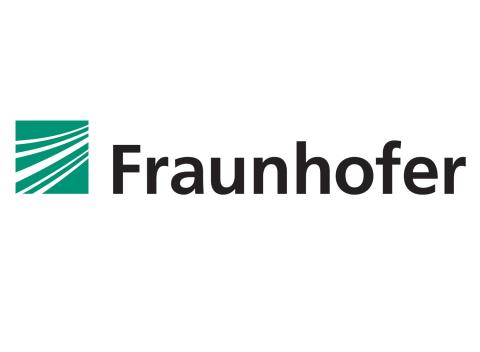
Fraunhofer
Website: https://www.fraunhofer.de/en.html
Contact: Robert Daschner (robert.daschner@umsicht.fraunhofer.de)
Hydroprocessing Capability: Scale: 3kg/h | TRL: 1-6
Fractionation Capability: Scale: 100ml - 2kg/h | TRL: 1-6
Fraunhofer has extensive experience in pyrolysis and operates pilot- and demonstration-scale hydrogenation and distillation facilities. The pilot hydrogenation plant enables industrial-scale catalyst testing, with up to 1.6 L of catalyst per reactor and a throughput of up to 3 kg per hour for long-term operation. The demonstration unit includes five fixed-bed reactors (63 L catalyst each) operating at up to 400°C and 115 bar. Complementing these are two distillation systems: a batch unit (15 L flask, 25 theoretical plates) and a continuous unit (2 kg/h, two columns with 35 theoretical plates each), both operable under vacuum (10 mbar abs) to residue temperatures of 350°C and 200°C. These systems are used for the distillation of Thermo-Catalytic Reforming (TCR) oil and its hydrogenated products to produce diesel, raw petrol, and kerosene fractions.

Green Fuels Research
Website: https://greenfuels.co.uk/gfr/
Contact: Sergio Lima (sl@gf-r.com)
Hydroprocessing Capability: Scale: l/d - 20Ld | TRL: 1-3
Fractionation Capability: Scale: µL/h - 25L/d | TRL: 1-3
Green Fuels Research provides benchtop and batch hydroprocessing facilities tailored to HEFA-SAF development. They operate custom flow reactors (450°C, 200 bar), flexible batch reactors (up to 600 mL, 300 bar), and a decommissioned 20 L/day pilot plant. Their team has experience in adapting reactor setups for alternative catalysts testing and has previously collaborated with industrial and academic partners, including Cardiff University. Fractionation capabilities include programmable micro-distillation (up to 25 mL) and a custom-built D86 column tested up to 1 L.
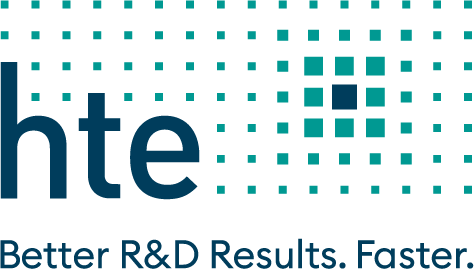
HTE GmbH
Website: https://www.hte-company.com/en/
Contact: Dr Fabian Schneider (Fabian.Schneider@hte-company.de)
Hydroprocessing Capability: Scale: 0.5 ml/h – 10 L /day liquid feed | TRL: 1–9
Fractionation Capability: Scale: 0.05-1.5 L (batchwise) | TRL: 1–5
Gas Phase Process Capability: Scale: 1 - 500 L/h gas feed | TRL: 1–9
HTE GmbH is an independent technology provider specialising in laboratory and pilot scale R&D workflows for catalyst and process development & testing for Sustainable Aviation Fuel and related low carbon fuels. HTE also offers the opportunity of independent benchmarking studies to compare commercial catalysts. A wholly owned subsidiary of BASF, HTE has more than 25 years of experience supporting catalytic process development from early research through to pilot scale validation.
HTE offers highly parallelised, automated reactor systems operating under industrially relevant conditions, with particular strength in hydroprocessing of biogenic and synthetic feedstocks. Capabilities include hydrotreating, hydrodeoxygenation, hydrocracking and isomerisation across a wide range of SAF pathways; furthermore, including syngas chemistry, Gas-to-Liquid, Alcohol-to-Jet and olefin oligomerization towards SAF. HTE works with feedstock suppliers, SAF developers, catalyst manufacturers and technology licensors to accelerate scale up and reduce technical risk prior to commercial deployment.
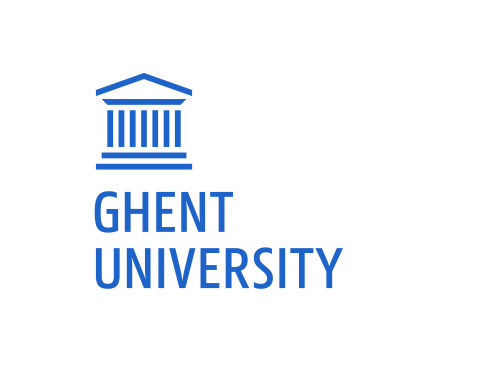
University of Ghent
Website: www.ugent.be/en
Contact: Bart Hommez (Bart.Hommez@ugent.be) and César Pernalete (Cesar.PernaletePina@ugent.be)
Hydroprocessing Capability: Scale: ml - l/d | TRL: 1-3
Fractionation Capability: Scale: none | TRL: none
The University of Ghent offers advanced hydroprocessing research infrastructure, particularly focused on pyrolysis oils. Capabilities include a fully automated Robinson-Mahoney type continuous stirred tank reactor (CSTR), supported by GCxGC offline analysis (FID, NCD, SCD). For catalyst development, a high-throughput kinetic reactor is available for rapid screening. They also offer proprietary modelling tools based on their single-event microkinetic (SEMK) methodology, suitable for scaling up to industrial hydrotreating or hydrocracking applications. Whilst this lab primarily focuses on hydroprocessing, they also have previous experiences of combining fractionation and hydroprocessing in collaboration with other labs within the University of Ghent.
